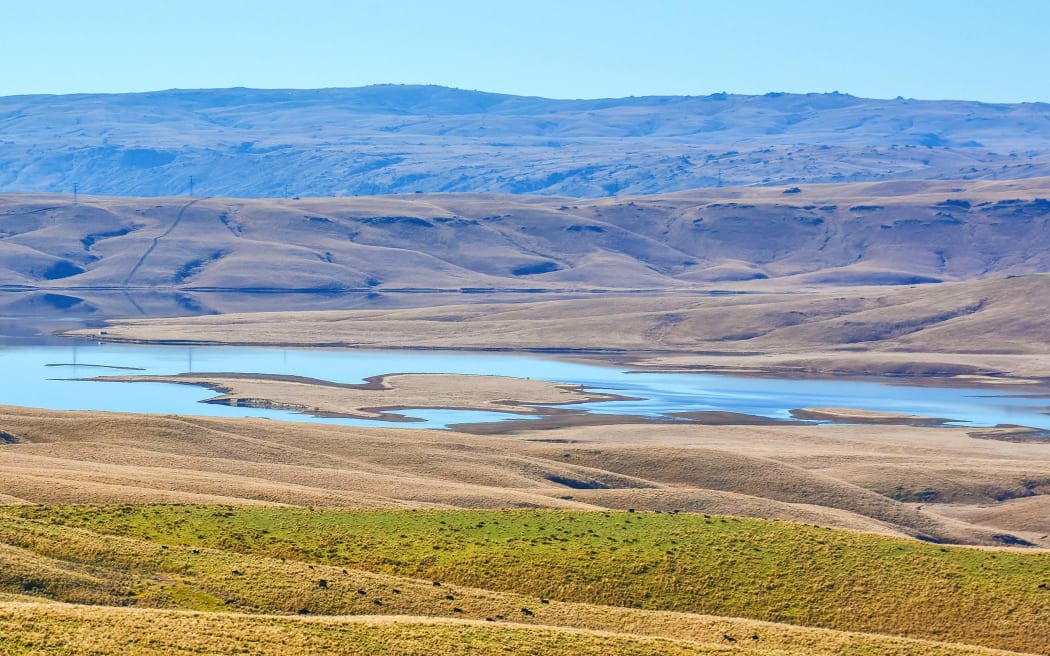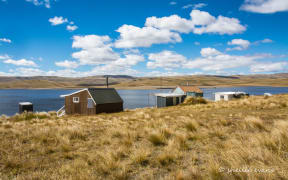
The Lake Onslow battery project was tipped to cost $16 billion. Photo:
An energy sector expert says the new government's decision to pull out of investigating battery projects in New Zealand is "short-sighted".
On Sunday, the new government confirmed it was stopping work on the pumped hydro energy storage project.
The project was floated as a solution to New Zealand's "dry year" problem - which happens about every seven years, when wind, solar and existing hydropower were insufficient to maintain electricity supply and the gap needed to be filled with fossil fuels.
The scheme had an estimated cost of $16 billion if it had gone ahead.
Instead, the National-led government wanted to cut red tape and encourage more private investment in wind, solar and geothermal energy projects.
University of Otago Centre for Sustainability senior research fellow Dr Jen Purdie told Morning Report the decision to stop the battery project was "short-sighted".
Lake Onslow was just one of the solutions for the dry year problem, she said.
"In this four-year project, they were only six months away from telling us what they thought [was] the best solution to dry year risk, so it seems short-sighted to can this project at this late stage, when the new government doesn't know what the answer... is."
The government had been expected to announce the best option next June, she said, from choices including Lake Onslow or a "portfolio approach", such as flexible geothermal, demand response, grid scale batteries and hydrogen biomass.
"The trouble is that [in] the National Party's energy policy, their only reference to the dry year problem is one line, that says (it) can be solved with renewable energy.
"But in New Zealand we're very small and all our renewable energy is highly correlated - when the wind stops blowing, it stops blowing everywhere, and most of our hydro inflows are in the South Island, and when these lakes are dry, they're all dry.
"So [the government] just encouraging renewable energy builds doesn't help us… in a way, they're sweeping the dry risk problem under the carpet, and saying 'we'll just build more kit' which I don't think is necessarily going to solve that problem."
Morning Report's Corin Dann asked Purdie if gas could be a transition fuel to provide security in those dry years.
"Yeah, absolutely, and I've long said that 100 percent renewable energy is the wrong target, as did the interim Climate Change Commission, which said that getting rid of the last 1 or 2 percent of gas in the system is an incredibly expensive way to decarbonise.
"I'm fully supportive of gas as a transition fuel but that word 'transition' does indicate that we've got to get rid of it at some stage... Maybe it's not 2030, maybe it's 2040 - we're still going to have to address the dry year problem when the gas disappears."
She believed it was "definitely possible" the private sector would invest in a smaller battery project, as they were common elsewhere around the globe.
The market development advisory group indicated last year that New Zealand could solve its dry year risk without Onslow, but only if "a whole lot of stuff could be put in place really quickly", she said.
"But without finishing this exploratory process, we don't actually know."
Earlier, Energy Minister Simeon Brown told Morning Report cancelling the project would open more opportunities for the sector to invest in renewable energy.
As part of its Electrify NZ policy, the new government aimed to reduce consent time frames for wind, solar and geothermal energy sources.
"We believe that will give the sector the tools to be able to make that investment, rather than the government getting involved, which has a chilling effect on the electricity market and delays those important investments that we need to increase renewable energy production in New Zealand."
Dann asked the minister if the market could meet demand during the dry year gap.
"Yes we can, and that's why we need an abundant supply of renewable energy and that's why we need to have the tools available for the sector to be able to make these investments.
"If the sector has... the right incentives in place, they will be thinking about how they can meet that demand."
Brown said the government also saw gas as a "transitionary fuel" to help with the dry year problem, which was why it was planning to repeal the ban on oil and gas exploration.
Asked about the global pact at COP28 to triple the level of renewables globally, Brown said the new government supported the overall consensus on that, but there were a range of other, specific agreements being put forward by other nations, which the government was still receiving advice on.
"All of our policies are about substantially increasing renewable energy, so we're certainly travelling in the same direction."
Labour leader Chris Hipkins, speaking to reporters at Parliament on Wednesday morning, said New Zealand needed to do something about energy storage regardless.
"Whether it's Lake Onslow or something else, ultimately renewable energies require battery. Onslow was going to be the biggest battery in the country - if they're not going to do that, how are they going to store renewable electricity so that we can actually rely on renewable energy more?"
The party's climate change and energy spokesperson Megan Woods said she was waiting to hear what the new government would do instead.
"If we're going to move to a greater level of renewables, New Zealand has to ensuure security of supply by ensuring that we've got adequate storage."
She said failure to act on climate change could soon affect trade.
"It's going to be interesting to hear how it is the new government is going to position New Zealand in the world - not only in terms of our diplomatic ties but our trading ties as well - in their backtracking on climate action.
"One of the central planks of the EU FTA was around sustainability and climate action. New Zealand's reputation is something that the new government needs to talk about how it is going to protect."






